Find schools
When you click on a sponsoring school or program advertised on our site, or fill out a form to request information from a sponsoring school, we may earn a commission. View our advertising disclosure for more details.
When you click on a sponsoring school or program advertised on our site, or fill out a form to request information from a sponsoring school, we may earn a commission. View our advertising disclosure for more details.
Founded in 1874, the Rose-Hulman Institute of Technology is a private college that specializes in science, engineering, and mathematics. Notable alumni include particle physicist Dr. Don Lincoln and Harvard engineering professor Chris Huttenhower. The institute is accredited by ABET, the Accreditation Board for Engineering and Technology for a total of ten engineering specializations.
R-HIT has been top-ranked in engineering among those U.S. colleges that do not offer a doctoral program for 20 years straight. The Department of Mechanical Engineering is where you find Rose-Hulman’s most popular major. Some of the specializations within mechanical engineering include aerospace, advanced transportation, industrial leadership, manufacturing and production engineering, dynamic systems control, and thermal fluid. There is a highly-competitive atmosphere at R-HIT, with many students teams including Design/Build/Fly, Robotics, Human Powered Vehicle, Rose Efficient Vehicle, and Formula SAE/Grand Prix Engineering.
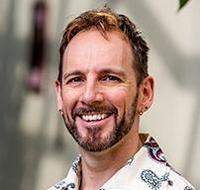
Thomas Adams, PhD
Dr. Thomas Adams is a professor of mechanical engineering at the Rose-Hulman Institute of Technology, where he teaches heat transfer, thermodynamics, solid mechanics, energy systems, fluid mechanics, and micro-electrical mechanical systems.
Dr. Adams has a research background in microfluidics, two-phase flow, MEMS, and turbulent convection in microchannels. He holds a patent for a shape memory alloy, MEMS heat engine, and received the Dean’s Outstanding Teacher Award. He is also a member of MENSA and has been published in Materials Letters and the International Journal of Mechanical Engineering and Mechatronics.
Dr. Adams’s received his BS in engineering from Rose-Hulman, his MS from the Georgia Institute of Technology, and his PhD from the same institution.
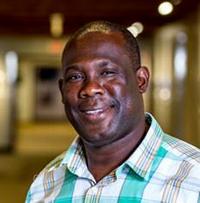
John Aidoo, PhD
Dr. John Aidoo is the Roland E. Hutchins Endowed Chair and professor of civil engineering at the Rose-Hulman Institute of Technology, where he teaches structural analysis, bridge design, structural steel design, advanced composite materials, reinforced concrete, and prestressed designs.
Dr. Aidoo has a research background in the fatigue behavior of concrete bridges, the laboratory and field testing of concrete structures, and the repair, maintenance, and strengthening of buildings and bridges using advanced composite materials (ACM). He is a recipient of the Dean’s Outstanding Teacher Award and a faculty mentor for the American Society of Civil Engineering’s Excellence in Civil Engineering Education program.
Dr. Aidoo received his BSc from the University of Ghana, his MS from the University of South Carolina, and his PhD from that same institution two years later.
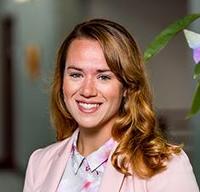
Rebecca A. Bercich, PhD
Dr. Rebecca Bercich is an assistant professor of mechanical engineering at the Rose-Hulman Institute of Technology, where she teaches and studies mechatronics, measurement systems, engineering design, and materials engineering.
Dr. Bercich has a research background in biosensors, atmospheric water harvesting, and biological markers of neuropathic pain. She earned teaching awards during her time as a graduate student and served as a guest speaker at Women in Engineering programs, which helps to encourage high schoolers to explore STEM careers. She has led and co-authored frequently-cited studies in the Journal of Neural Engineering and Transactions on Biomedical Engineering.
Dr. Bercich’s doctoral research focused on the development of wirelessly powered implantable devices that record and stimulate bioelectric activity. She completed her BS, MS, and PhD at Purdue University.
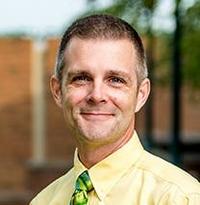
James Hanson, PhD
Dr. James Hanson is a professor of civil engineering at the Rose-Hulman Institute of Technology, where he teaches structural analysis and design and construction management. An accomplished professional, Dr. Hanson has authored a revolutionary textbook called “Structural Analysis: Skills for Practice” that introduces analysis techniques with an emphasis on developing student intuition.
Dr. Hanson’s interests include metacognition, numerical modeling of cohesive crack behavior, fracture mechanics, and various writing-to-learn methods. He is a registered professional engineer and a fellow of the American Concrete Institute, has received awards from the American Society for Engineering Education and ACI for excellence and innovation in teaching, and also has earned Rose-Hulman’s Outstanding Teacher Award.
Dr. Hanson earned his BS, MEng, and PhD from Cornell University.
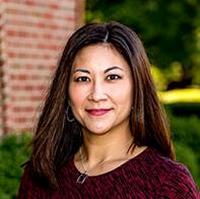
Kimberly H. Henthorn, PhD
Dr. Kimberly Henthorn is an associate professor of chemical engineering at the Rose-Hulman Institute of Technology, where she lectures on particle technology, two-phase microfluidic systems, material and energy balances, and senior design chemical engineering.
Dr. Henthorn’s research and teaching interests focus on gas-liquid microfluidic flows, particle technologies engineering, fine particle characterization, multiphase processes, and studies of the transport of solids in microfluidic channels. She is an advisor for the school’s Delta Delta Delta sorority chapter, and her professional experience includes working for Dow Chemical and Reilly Industries, in addition to serving as a consultant for Mo-Sci Corporation, Brewer Science, and Pfizer.
Dr. Henthorn received her BS from Rose-Hulman. Several years later, she emerged at the head of her class with a PhD in chemical engineering from Purdue University.
Harvey Mudd College was begun in 1955 by a group of investors as a private undergraduate science and engineering school named after businessman Harvey Seeley Mudd. It is competitive residential college located in Claremont, California and shares campus grounds with other STEM schools in the contiguous Claremont Colleges network. Notable alumni include two NASA astronauts, a U.S. foreign relations diplomat, a gold recording artist, and a co-inventor of SQL. It has an acceptance rate of 13 percent, which ensures that the balance of both the student and faculty bodies is always in equilibrium.
The school’s Department of Engineering offers innovative, intimate classes on all aspects of engineering and emphasizes a curriculum that locks in on analysis, critical thinking, and creative solutions. HMC offers four-year degrees in chemistry, mathematics, physics, computer science, biology, and engineering, and interdisciplinary degrees in mathematical biology. They also offer two joint majors: computer science/mathematics and biology/chemistry.
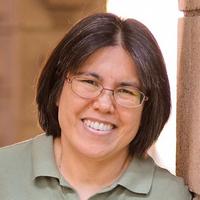
Mary Cardenas, PhD
Dr. Mary Cardenas is the La Fetra Chair in environmental engineering and professor of engineering at Harvey Mudd College, where she teaches mechanical engineering, aerospace engineering, civil engineering, and fluid mechanics.
Dr. Cardenas research interests include rocket propulsion, environmental fluid dynamics, sediment transport, contaminant transport, and theories of engineering pedagogy. She’s a passionate advocate for undergraduate engineering education and resource direction, developing innovative introductory courses on chemical and thermal processes, systems engineering, experimental engineering, and compressible flow.
She received her BSc in aerospace engineering from Iowa State University, her MSc in mechanical engineering from UC Santa Barbara, and an interdisciplinary PhD in mechanical and environmental engineering from the same institution.
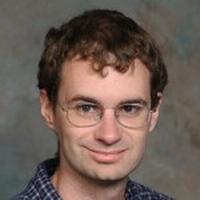
David Harris, PhD
Dr. David Harris is a professor of engineering and associate director of the Engineering Clinic at Harvey Mudd College. He holds a dozen patents and has excelled in the professional sector, where he has designed computer chips for Sun Microsystems, Intel, Hewlett-Packard, and Evans & Sutherland.
Dr. Harris’s research interests include computer arithmetic, high speed CMOS VLSI design, skew-tolerant circuit design, digital design, and computer architecture. He is also the recipient of a Clay-Wolkin Fellowship. At HMU, Professor Harris teaches computer engineering, electrical engineering, microprocessor applications, experimental engineering, HW/SW codesign for wireless systems, autonomous vehicles, and digital electronics and chip design.
Dr. Harris received his PhD from Stanford University and his SB and MEng degrees from MIT.
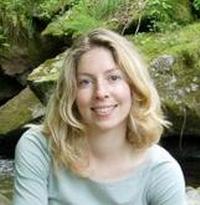
Nancy K. Lape, PhD
Dr. Nancy Lape is a professor of engineering at Harvey Mudd College, where she serves as the director of the Patton and Claire Lewis Fellowship in Engineering Professional Practice. In 2009, she received a National Science Foundation CAREER Award for her work in engineering. She has presented dozens of papers at conferences, department meetings, and on research committees.
Dr. Lape’s research interests include energy-efficient composite gas separation membranes, chemical transport across human skin, and engineering education. Professor Lape received a BS in chemical engineering from the University of Massachusetts at Amherst and a PhD in chemical engineering from the University of Minnesota, Twin Cities.
Dr. Lape completed her postdoctoral studies at the Laboratoire des Sciences du Genie Chimique (CNRS), ENSIC-INPL in Nancy, France.
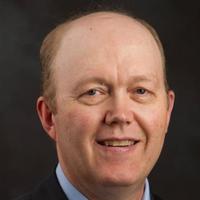
Erik Spjut, PhD
Dr. Erik Spjut serves as the Union Oil Company Design Fellowship Professor and a professor of engineering at Harvey Mudd College, where he teaches digital electronics, computer engineering, chemical and thermal processes, advanced thermodynamics, chemical reaction engineering, and materials engineering. He formerly taught at Cal Poly Pomona, Caltech, and MIT. He is also an experienced consultant in the areas of single and multiphase fluid flow, development and automation of experiments and experimental equipment, and modeling for radiant heat transfer.
Dr. Spjut’s research interests include inertial measurement and Kalman filtering, vibrational system ID, the physics of rocket flight, data acquisition and error analysis, adaptive-optics, heterogeneous reactions, aerosols, and computer-controlled experimental design. He often undertakes special projects for curriculum development where he utilizes digital audio algorithms, coding, and processing, and video and audio production.
Dr. Spjut received his PhD from the Department of Chemical Engineering at MIT and a BS in Chemical Engineering from the University of Utah.
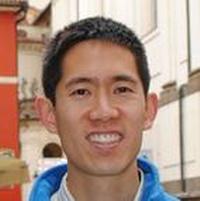
Timothy J. Tsai, PhD
Dr. Timothy Tsai is a professor of engineering at Harvey Mudd College, where he teaches advanced systems engineering, music signals processing, information theory, and communication theory.
Dr. Tsai’s research interests are concerned with music information retrieval and audio signal processing. He has published studies of musical engineering in IEEE/ACM Transactions on Audio, Speech, and Language Processing and the Proceedings of Interspeech.
Dr. Tsai received his BS and MS in electrical engineering from Stanford University and his PhD in electrical engineering and computer science from UC Berkeley in 2016.
Vanderbilt University is named after Cornelius Vanderbilt, head of the New York shipping empire. It was he who provided the school its initial $1 million endowment in 1873, hoping that the construction of a new center of learning in Nashville would help heal some of the national wounds from the Civil War. Notable alumni include former Vice President Al Gore, bestselling author James Patterson, author Robert Penn Warren, and half-a-dozen public servants, congressman, and politicians.
VU’s first-rate School of Engineering offers courses in biomedical engineering, chemical engineering, biomolecular engineering, civil and environmental engineering, electrical engineering, computer science, mechanical engineering, and a revolutionary interdisciplinary materials science program. The school is a lauded research university, and undergraduate students who are interested in pursuing graduate and doctoral programs can enjoy countless opportunities to contribute to original projects, especially students of significant scholastic achievement and drive.
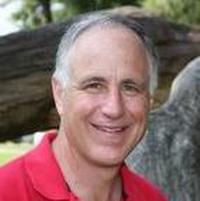
Mark Abkowitz, PhD
Dr. Mark Abkowitz is a professor of civil and environmental engineering and engineering management at Vanderbilt University where he serves as Director of the Vanderbilt Center for Environmental Management Studies (VCEMS).
Dr. Abkowitz’s research interests include risk management, risk assessment, infrastructure resilience, freight transportation, spatial analysis, disaster preparedness. He is the author of “Operational Risk Management – A Case Study Approach to Effective Planning and Response,” published by John Wiley & Sons.
Dr. Abkowitz received his BS, MS and PhD degrees in civil engineering from the Massachusetts Institute of Technology.
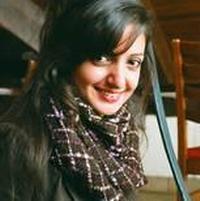
Hiba Baroud, PhD
Dr. Hiba Baroud is an assistant professor of civil and environmental engineering, a Littlejohn Dean’s Faculty Fellow, and the director of graduate recruiting for civil engineering at Vanderbilt University.
Dr. Baroud’s study foci include risk analysis, statistical modeling, risk-informed decision analysis, resilience modeling, and critical infrastructure systems modeling. She has studied data-driven Bayesian methods to predict the occurrence of disruptive events in infrastructure systems and stochastically model the recovery process of physically disrupted systems.
Dr. Baroud holds a PhD in industrial and systems engineering from the University of Oklahoma and a master’s in mathematics from the Department of Statistics and Actuarial Science at the University of Waterloo.
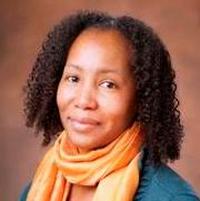
Audrey Bowden, PhD
Dr. Audrey Bowden is an associate professor of biomedical engineering and the Dorothy J. Wingfield Phillips Chancellor’s Faculty Fellow at Vanderbilt University. She teaches biomedical engineering.
Dr. Bowden’s research interests include biophotonics, light-based tools with applications in medicine and biology, which are used in the early detection, diagnosis, and therapy of cancer. She also studies the development of point-of-care technologies for rural and global health applications.
Dr. Bowden received her BSE in electrical engineering from Princeton University, her PhD in BME from Duke University, and underwent postdoctoral training in chemistry and chemical biology at Harvard.
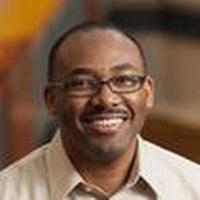
William Robinson, PhD
Dr. William Robinson is the interim vice provost for strategic initiatives, associate dean for academic success, and a professor of electrical and computer engineering. He also co-leads the Explorations in Diversifying Engineering Faculty Initiative (EDEFI).
Dr. Robinson’s study interests comprise cyber-physical systems and risk and reliability assessment, as well as electrical engineering, among others. He leads the Security And Fault Tolerance (SAF-T) Research Group, which addresses the reliability and security of computing systems across the abstraction layers of hardware and software
Dr. Robinson holds a PhD in electrical and computer engineering and MS in electrical engineering from the Georgia Institute of Technology.
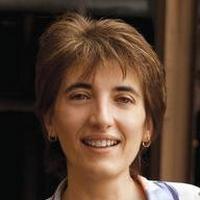
Florence Sanchez, PhD
Dr. Florence Sanchez is an associate professor of civil and environmental engineering, associate chair of civil and environmental engineering, and the director of graduate studies in environmental engineering.
Dr. Sanchez’s research interests include chemo-mechanical behavior, the long-term performance of cement-based composites, nanoscale behavior, the nanomodification of cement and concrete materials, and the 3D printing of infrastructure materials.
Dr. Sanchez received her PhD in environmental engineering and an MS in waste sciences and techniques from the Institut National des Sciences Appliquees du Lyon (INSA).
These selected private research schools must:
To be marked for inclusion on our list of top-rated engineering professors and faculty, we used the following criteria:
By participating in a high school engineering program, students can build a solid foundation in STEM, form professional networks, and gain a clearer sense of their academic and career paths.
Engineers might be the only group of people where you can give them a problem—and they can consider it a gift. The engineering mind thrives on hunting for elegant solutions to complex tasks. That doesn’t mean you should give an engineering student a homework assignment for the holidays, but it does mean you can have some fun with the gift you eventually select.
Engineering internships are an increasingly important part of the transition from student to engineer. Internships provide an opportunity to put theoretical skills to work in hands-on environments. They also give engineering students valuable work experience, networking opportunities, and future career options.
Not long ago, self-driving cars were science fiction. Today, not so much. Influential companies like Tesla, Uber, Apple, and Google boast dynamic auto-drive programs, and many new startups are following their lead.
Professional licensure is a valuable asset, particularly for engineers who want to work in public safety, government projects, consultation services, or management and leadership positions.